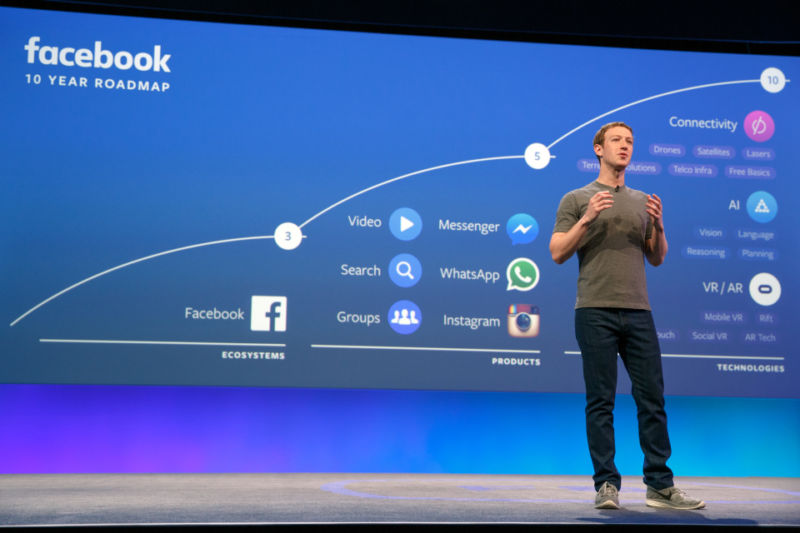Find out the week’s top mobile stories from around the world.
This week.. Apple Releases Software Fix for FaceTime Eavesdropping Flaw, Man who stole $5M in cryptocurrency via SIM swap pleads guilty, why mobile apps are a headache for critical public services and much more.

Apple Releases Software Fix for FaceTime Eavesdropping Flaw
Bloomberg
Apple Inc. on Thursday released a software update for iPhones and its other devices to fix a bug that let users of its FaceTime video-chat service listen in on people before they accepted or rejected the call.
The renewed software, labeled as iOS 12.1.4, can be installed on Apple mobile devices in the Software Update tab under Settings. Apple also released a macOS Mojave 10.14.3 update that fixes the bug for Mac computer users. The glitch occurred when a user created a FaceTime conference call, put in a phone number, and then added another person’s number.
Read more…
Man who stole $5M in cryptocurrency via SIM swap pleads guilty
Ars Technica
A 20-year-old Massachusetts man who recently accepted a plea deal with prosecutors in Santa Clara County, California, is believed to be the first person in the US to be convicted of SIM swapping.
The SIM swapping technique allows a person to fool a mobile carrier into transferring someone else’s number to them—thus enabling possible account hijacking or other password resets that rely on the phone number itself as an authentication device.
Read more…
Why Mobile Apps are a Headache for Critical Public Services
Computer Business Review
There are growing questions over to what extent mobile apps can eavesdrop on their users. And if they can, what can they do with that information? Could a conversation recorded by a voice-activated app get us into trouble?
The feeling we are constantly being listened to is scary enough. But what if the app had been hijacked by criminals or terrorists, or the recorded conversation were stolen when the app’s creator is hacked? What if that app was on a phone belonging to a police officer or a doctor? What could the hacker do with that conversation?
Read more…
Facebook was late to mobile. Now, mobile is its future
Wired
When Facebook filed to become a publicly traded company almost exactly seven years ago, its social network barely extended beyond the desktop. For most of 2012, mobile-only users made up a small fraction of all of the people on the network.
Its mobile app didn’t display any ads. Facebook was frequently called out on its lagging mobile strategy, and its move away from HTML5 that year, along with its $1 billion buy of that nifty photo-sharing app Instagram, was seen as part of an attempt to change that.
Read more…
Mobile holiday spending was over 120 per cent higher than rest of year in 2018 – report
Mobile Marketing Magazine
The holiday season in 2018 saw shoppers browse and spend 121 per cent more on mobile than the average mobile shopper prior to the holidays, according to a report from mobile commerce partnership platform Button.
Button tracked mobile shopping within the Button Marketplace, which includes partnerships with companies like Amazon, Walmart, Uber, Hotels.com, eBay, and Boxed. The Button Marketplace has seen more than $1bn in sales and is home to nine out of the top 10 retailers, as listed by Forbes.
Read more…
The Next Gaming Giants: What We Can Learn from Recent Mobile Acquisitions
Exchange Wire
In the span of five years, mobile gaming has grown from the smallest segment of the gaming market to a USD$70bn (£61.6bn) industry. It’s unsurprising then, that the past couple of years have been huge for mobile gaming acquisitions, from Zynga buying Gram Games to Niantic adding VR-focused Seismic Games. In this piece, Simon Spaull (pictured below), MD EMEA, AppLovin, charts the most significant acquisitions in the mobile gaming space of late and what they signal for the future of the industry.
Read more…
Apple is cracking down on apps that secretly record your screen
Engadget
A recent report by TechCrunch and The App Analyst revealed that some major companies use an analytics tool that secretly record every swipe and tap you make within their applications. Now, Apple has started tellingdevelopers to remove that screen-recording code if they don’t want their apps yanked from the App Store.
See, most of the applications that use the tool don’t ask for permission to record your activities and your screen. That goes against the tech giant’s App Store Review Guidelines, which (as a spokesperson explained to TechCrunch) “require that apps request explicit user consent and provide a clear visual indication when recording, logging, or otherwise making a record of user activity.”
Read more…
Google makes it easier for cheap phones and smart devices to encrypt your data
Tech Crunch
Encryption is an important part of the whole securing-your-data package, but it’s easy to underestimate the amount of complexity it adds to any service or device. One part of that is the amount of processing encryption takes — an amount that could be impractical on small or low-end devices. Google wants to change that with a highly efficient new method called Adiantum.
Here’s the problem. While encryption is in a way just transforming one block of data reversibly into another, that process is actually pretty complicated. Math needs to be done, data read and written and reread and rewritten and confirmed and hashed.
Read more…
The Chinese New Year is a mobile cash bonanza
Yahoo
The Lunar New Year has become an intense marketing battlefield for China’s tech giants. It’s also an expensive one with millions of cash burn.
With over 800 million smartphone users and the world’s largest mobile payment market, the annual holiday, which includes the tradition of giving cash in red envelopes to deliver good luck and greetings to family members and friends, has evolved into a day of promotions. Homegrown companies like Baidu and Alibaba are pouring cash into digital red envelopes, which have become prevalent, to attract users to its services.
Read more…
WhatsApp faces fresh pressure in India
Mobile World Live
WhatsApp reportedly rejected draft rules which would require tech companies to give the Indian government access to encrypted messages, but said it is using artificial intelligence (AI) to ban suspicious accounts.
The company is under the spotlight following accusations political parties are misusing the platform ahead of national elections scheduled to take place in April and May. In 2018 WhatsApp was heavily criticised for failing to quell the spread of misinformation which was linked to outbreaks of violence in the country.














